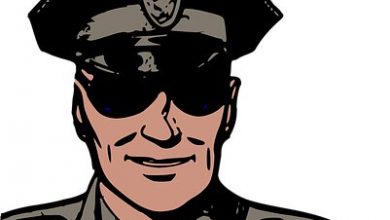The Moment Before the Gun Went Off is a short story written by the South African writer, Nadine Gordimer, in 1988. The short story gives insight into the final years during the South African policy of apartheid and thus, focuses on the death of a black young man at the hands of the white Afrikaner, Marais Van der Vyver. The Moment Before the Gun Went Off resonates with the themes of racism and their consequences in the changing times during the abolition of apartheid laws. The short story engages with the themes of contrast between the white farming community and the black people, as well as, interracial relationships.
The Moment Before the Gun Went Off — Summary
The short story begins with the declaration of an accidental shooting that resulted in the death of a black man at the hands of a white Afrikaner farmer named, Marais Van der Vyver, in South Africa. However such accidental shootings with guns happen often because of their availability in the country. And thus, they won’t make it to the newspapers. But the story of Marais Van der Vyver, a white farmer, shooting a black man will undoubtedly make its appearance in the papers. So, he becomes worried about the papers that will mistakenly report the accident which will lead to the ignition of anti-apartheid activists back in the city. Moreover, Van der Vyver worries that this incident will surely become another piece of evidence to manifest the conditions and the truth about the apartheid laws and the white man’s brutality in the country of South Africa.
Van der Vyver contrasts the city people, the Americans, and English, and “those people at home”, who favor anti-apartheid laws and who want to see the destruction of the white man’s power to that of the people within the farming community in South Africa, who will understand several things that the former won’t understand. He reflects upon the consequences of his action which will make him guilty and the truth that the white farming community will understand when he says that the death of the black man was purely an accident and that he will take care of the deceased man’s wife and children because he was his friend. But Van der Vyver knows that the people overseas will only manifest a “sneer” upon these comments.
The story further moves on to describe the events that lead to the death of the young black man as Van der Vyver arrives at the police station to confess about the accident. He is supposed to make statements about the death to the police officer in charge, Captain Beetge, who, of course, knows him very well. The Captain offers brandy to Van der Vyver as he is trembling with fear. In the drunken state, Van der Vyver sobs and weeps like a “dirty kid” and Beetge promises himself that he will never talk about this to anyone. Further on, Van der Vyver explains the circumstances leading to the accident.
Apparently earlier that day, Van der Vyver had set off from his house at three in the afternoon to slaughter a Kudu from the farm, and as usual, he called his twenty-year-old farmer boy Lucas, to accompany him. Besides Lucas traveling at the back of the truck, Van der Vyver also carried with him a rifle that he was sure was not loaded, because his father had never allowed keeping loaded guns in the house. But the truck passed over a dirt track and at that time, Lucas signaled and pointed to his left side because he saw the buck. Seeing this, Van der Vyver quickly rides over a pot-hole that, unfortunately, leads to the jolting of fire from the rifle. This accidentally goes straight up Lucas’ head, which kills him.
An elaborate funeral, provided by Van der Vyver, follows the day. The young wife of Lucas sobs and cries but the mother says nothing and just stares at her son’s grave. Van der Vyver, too, stares at the grave, without uttering anything like the moment between the dead black man and Van der Vyver, before the gun had gone off, a moment described as “a moment of high excitement”. The story ends with a short rambling series of monologues that concludes by saying that none of the evidence in the papers will know the truth. The unknown truth is that the young black man shot and killed by Marais Van der Vyver was his own son.
The Moment Before the Gun Went Off — Analysis
The themes of racism and racial segregation are brought forth extensively in this short story which sets its background against the final years of apartheid policies in South Africa. Gordimer deals with these themes by employing an omniscient, third-person narrative but shrewdly deciding, the narration to be predominantly told through the perspective of the white protagonist, Marais Van der Vyver. Such a point of view, from the side of a white character, emphasizes the oppression faced by black people.
Gordimer engages with the theme of racism as she puts forth in the story, a sense of inferiority, forced to embody by the black people within the point of view of the protagonist. At the elaborate funeral of Lucas, the author gives insight into the pondering thoughts of Van der Vyver. He judges the blacks for arranging an elaborate funeral because that means a great deal to them and he thinks, “Look how they will deprive themselves of the little they have, in their lifetime, keeping up payments to a burial society so they won’t go in boxwood to an unmarked grave”.
Furthermore, Van der Vyver, as he sees the young child of the dead man clinging to his mother, who is crying and sobbing like a child, accuses the blacks of exposing their little children to everything, especially, death, a tragic event that the blacks have to witness on almost on a daily basis. He bluntly thinks about the blacks and blames them, “They don’t protect them from the sight of fear and pain the way whites do theirs”. Such absurd thoughts on black people, without considering their perspective, are undoubtedly manifested here. Hence, these conscious thoughts running within the mind of the protagonist could subtly indicate the passive voice of the dead black man and his black family.
The theme of racial segregation is swiftly brought forth in the short story during the moment where Van der Vyver and Lucas go off in their truck to slaughter, or more specifically, to “cull” a buck, a sharp juxtaposition between the buck and the young black man. Culling in animal breeding means a process of segregating the cattle according to their desired or undesired characteristic traits, or simply, a selective slaughtering of undesired or inferior cattle. Here, the buck that Van der Vyver sets out to kill, but instead, accidentally kills Lucas, a symbolized Kudu. Thus, Gordimer brilliantly symbolically compares the Kudu and Lucas as inferior animals to be slaughtered. Such a comparison is made more clear when Van der Vyver reflects on the moment after the gun went off that made the buck gallop away in fear and suddenly, he hears Lucas falling onto the floor with a thud. Van der Vyver further says, as he opens the door to look back, “He was sure he had leaped up and toppled – in fright, like the buck”. The fright of the buck and the fright of the young black man are undoubtedly referred to here and thus, echoes a juxtaposition between them.
The Moment Before the Gun Went Off — Themes
Gordimer approaches the themes of the conflict between the white farming community and the black activists protesting for the abolition of apartheid policies by keeping them in contrast with each other.
The consequences that distress Van der Vyver after the accidental shooting of the young boy Lucas are mostly the judgmental and sneering comments from the political black activists campaigning for anti-apartheid laws in the city. Specifically, their version of reporting “falsely” in the newspapers about the death of a black man at the hands of a white man. This sense of fear and distress is heightened at the moment after Van der Vyver records his statement and thinks to himself that the truth recorded will always remain as an archive in the police station and that it will live through all the generations of his children, clearly evoking a sense of shame. But he reflects on the possibility that “unless things in the country get worse, the example of black mobs in the towns spreads to the rural areas and the place is burned down as many urban police stations have been”. Herein, the author might be suggesting a subtle desire from the side of Van der Vyver, for the blacks to burn down the stations with all the documented archives, including his.
As reflected within the thoughts of Van der Vyver, the use of the word “mob” to denote the black activists, clearly refer to their protests as derogatory. Moreover, he says about the black mob as such, “Nothing satisfies them, in the cities: blacks can sit and drink in white hotels now, the Immorality Act has gone, blacks can sleep with whites… It’s not even a crime any more”, a probable reason behind Van der Vyver’s feeling of shame because in earlier times, no white man would have felt any kind of shame or guilt for killing a black man and thus, it evokes the wide-spread protests and the promulgation of the anti-apartheid policies that will soon bring towards the abolition of apartheid laws.
The conflict of thoughts between the white farming community and the increasing presence of black activists within Americans and English are even more contrasted at the beginning of the short story. Van der Vyver distressfully wonders about the consequences of his action, “The papers at home will quote the story as it has appeared in the overseas press, and in the back-and-forth, he and the black man will become those crudely-drawn figures on anti-apartheid banners, units in statistics of white brutality against the blacks”. Whereas, the farming community will know the truth about his feelings and the truth that Lucas was his friend, whom he used to take with him for hunting. There is a constant juxtaposition between the changing city that has voiced its resistance against the oppression by white supremacy and on the other hand, the countryside that hasn’t yet changed. Van der Vyver, of course, favors the countryside like any other white man and thus, the constant contrast brought by him between the city and the farm.
But the ideas of the black activists, “the big-mouth agitators in town”, have begun to spread to the farming community and the death of a black man at the hands of a white man can no longer be considered as mundane but a crime.
The title of the short story is dominantly significant to the short story as it echoes “a moment of high excitement” but ironically, followed by the death of the unintended buck, Lucas. A moment of truth that places Lucas and the Kudu on the same plane.
The Moment Before the Gun Went Off — Character Sketch
Marais Van der Vyver- The protagonist of the non-linear short story, The Moment Before the Gun Went Off. He is the regional Party leader and Commandant of the local security commando and is portrayed as embodying a strange distressful face.
The Moment Before the Gun Went Off — Literary Devices
Gordimer makes ample use of literary devices of juxtaposition and contrast. Within such employment of these devices, the short story in its non-linear narrative brings forth the device of irony.
The narration puts together juxtaposition and contrast to compare the contradicting thoughts in the mind of Van der Vyver with respect to the farming community and the black agitators in the city. Van der Vyver is immediately to discern the fact that his farming community will understand and acknowledge the feelings experienced by him, “They see the truth of that”. Even more, the photographers that will be published in the newspapers will evoke a sense of feeling, wherein, “you feel like apologizing; as if you had started in on some room where you should not be”. Such an in-depth description of the apparent understanding and closeness from the side of the farming community towards Van der Vyver is contrasted with the black activists back at “his home” who will probably sneer and rudely remark at his comments on the accidental killing of the black man.
Herein, the author introduces the device of irony as she shows the interracial relationship between Van der Vyver and Lucas. The truth that Lucas is his own son is only revealed at the end of the short story but moreover, their relationship is evoked in the short story. For instance, the moment before the gun went off is described wherein, we see Van der Vyver jokingly teasing the young man because, unaware of Lucas’s death, the loud thud of the boy made him think that the boy must have galloped in fright like the buck. Thus, a moment of the irony of an intense relationship between a black man and a white man.



